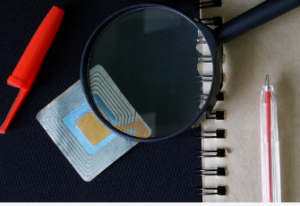RFID Tracker Benefits For Retailers
July 31, 2023
A ramprfid.com RFID tracker can automatically update data directly to your inventory or supply chain management system. It automates the manual monitoring process and brings significant labour savings.
 Traditional tracking methods, such as barcodes or engraved tags, require staff to locate the title, scan it, and manually input the data. It can be not easy, especially when the label is hidden or not in the line of sight.
Traditional tracking methods, such as barcodes or engraved tags, require staff to locate the title, scan it, and manually input the data. It can be not easy, especially when the label is hidden or not in the line of sight.
Location Tracking
An RFID tracker can help you automatically identify and record the location of equipment or inventory, improving inventory management in warehouses and providing various other benefits. It can also improve the accuracy of stock tracking in retail stores and prevent theft or shrinkage. RFID does not require line of sight like barcode scanning in confined spaces.
The technology is beneficial for tracking movable items, such as office furniture and laptops, which are often challenging to watch. An active RFID tag contains its power source, which allows it to send a signal that an RFID reader picks up. The call can then be interpreted by software that can show the location of that item on a map.
Some companies use RFID to monitor employees, primarily when they work outdoors or in confined spaces. For example, some police departments equip their officers with RFID tags to monitor their location and movement. It can help them locate suspects and reduce the number of false arrests made by officers who fail to check their sites as they go through the arrest process.
RFID is more beneficial for tracking people than vehicles, but some concerns have arisen about the technology’s use in this area. For example, the National Network to End Domestic Violence has voiced concern that stalkers and abusers could use technology to monitor their victims. Government agencies have tried to reassure the public by issuing statements such as this one from the Washington State Department of Licensing: “The RFID tag on the enhanced driver’s license doesn’t have any power source and does not contain personal identifying information.”
Aside from its use in law enforcement, location tracking is a crucial advantage of RFID, as it can be used in areas without GPS signals. For instance, many hospitals and health/medical providers use ramprfid.com RFID tracker to track medical equipment, assets, and patients. It helps staff to quickly and accurately find what they need without having to search for items, which can be difficult in cluttered or crowded rooms.
Inventory Management
For many retailers, tracking inventory is a top priority. Whether providing customers with an accurate, up-to-date selection or improving store operations and security, RFID is essential. In-store RFID systems consist of RFID tags attached to items, handheld or fixed readers that communicate with these tags wirelessly and software that captures and manages the information.
In addition, by reducing manual labour and errors, an RFID inventory system can reduce costs and increase efficiency. For example, RFID scanners can be rolled around a pallet to scan its contents without lifting the product. It can save significant time and money compared to traditional barcode-based methods that require manually counting and checking every box or container.
An RFID inventory system also provides valuable visibility into the entire supply chain. It includes knowing when products arrive in warehouses, their departure dates, and when they were last scanned at a point-of-sale register. It helps companies reduce stockouts, improve cash flow and profitability, and make better purchasing decisions.
Retailers also use RFID technology to serve customers with buy online, pick-up in-store (BOPIS) services. When a customer orders an item’s specific size or colour, the retailer can send it directly to the store for pick-up. RFID is critical in this process because it allows retailers to offer more sizes and colours of popular products and ensure that the order goes out to the correct store.
Another use of the ramprfid.com RFID tracker is to track theft. As a security measure, RFID tags can alert employees when someone takes a product off the shelves or out of a refrigerated case. It can help reduce the risk of loss or theft, a $94.5 billion problem for the retail industry. Lastly, RFID can provide valuable insights into shopper behaviour in stores. For example, by analyzing RFID data, retailers can learn how shoppers move around their stores, which can inform the placement of merchandise to maximize sales and enhance the shopping experience for customers.